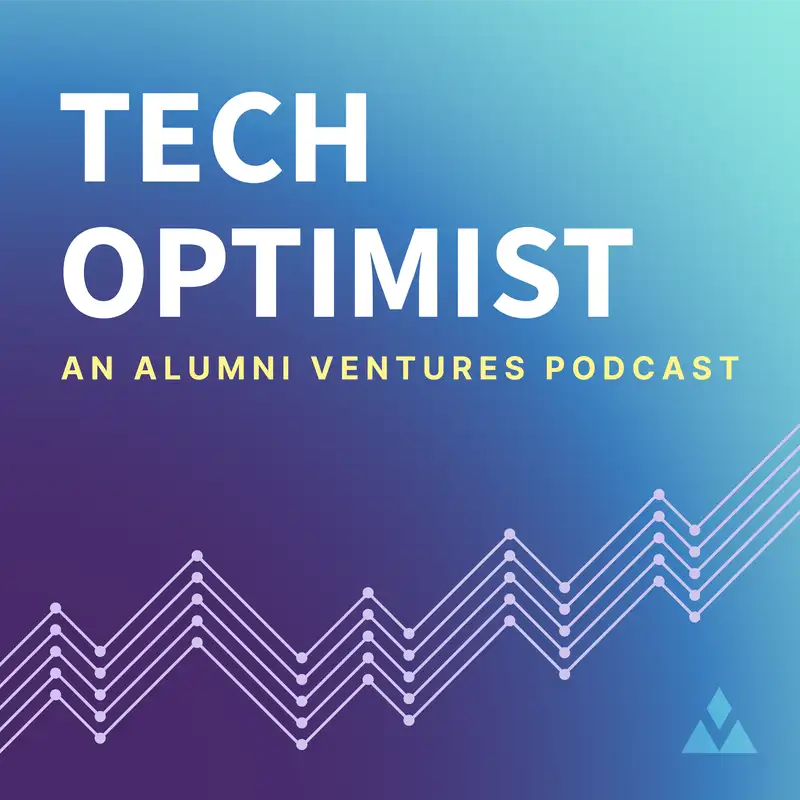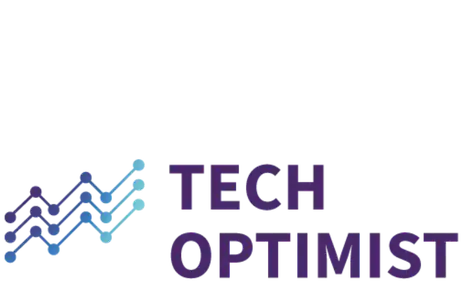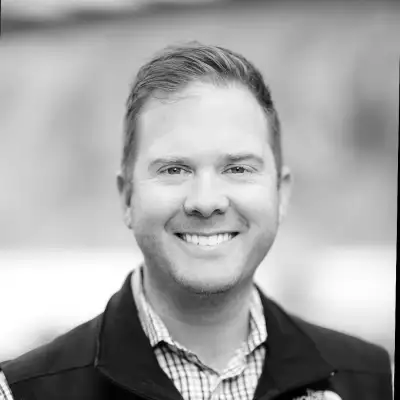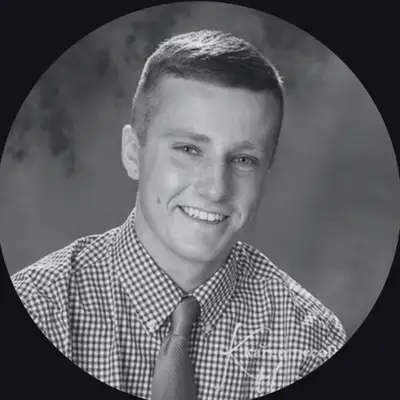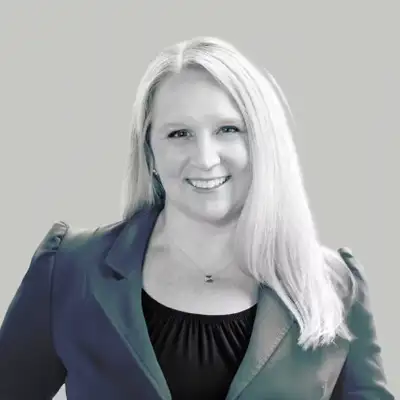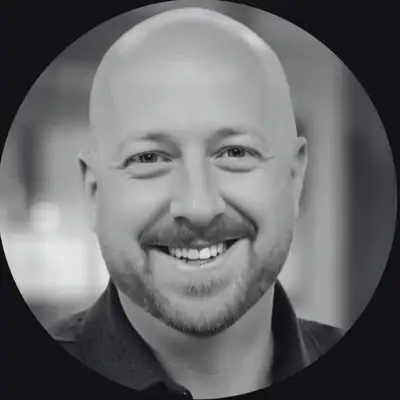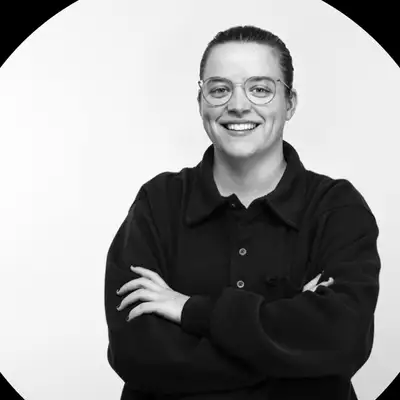#33 - AI Body-Cams: The Startup Transforming Policing
Sam Herrick:
Welcome back to this episode of The Tech Optimist: Meet the Startup. Today we talk with Truleo. The voices that you'll hear on today's episode are from Mike Collins, CEO, here at Alumni Ventures, Anthony Tassone, Co-founder and CEO at Truleo, the highlighted startup for today, and myself, Sam Herrick, your tech note writer, guide, and overall Sherpa for the show today.
Have you ever wondered what happens to all the data that comes from body wear cameras worn by police? A company called Truleo has figured out what to do with it. Welcome back. Let's hop right in.
Anthony Tassone:
Most civilians are surprised to learn that none of the body camera videos are reviewed.
Mike Collins:
This phenomenon that I think we've all experienced, which is videos are really part of our society now, including body cameras on our civil servants and police officers.
Anthony Tassone:
Making your elected officials aware that they can get a better return by implementing a solution like Truleo.
Sam Herrick:
In a world captivated by criticism, it's easy to overlook the groundbreaking technologies shaping our future. Let's shine a light on innovators who are propelling us forward. As the most active venture capital firm in the US, we have an exceptional view of tech's real world impact. Join us as we explore, celebrate, and contribute to the stories of those creating tomorrow. Welcome to The Tech Optimist.
As a reminder, The Tech Optimist Podcast is for the informational purposes only. It is not personalized advice, and it's not an offer to buy or sell securities. For additional important details, please see the text description accompanying this episode.
Mike Collins:
Let's get into it. So welcome to this episode of The Tech Optimist Podcast where we meet founders, and today I've got a privilege to talk to someone who's doing some really interesting work with an early stage company. AT, Nice to meet you.
Anthony Tassone:
Yes, sir. Nice to meet you, Mike. Essentially the problem we solve is police morale, recruiting retention, all very low. There's no recognition. There's not a lot of celebration happening in policing. Most of the people, most civilians are surprised to learn that none of the body camera videos are reviewed. Unless there's a horrific use of force or a complaint, no one's watching these videos at the department. So what we do is we transcribe and analyze these videos and we recognize officer professionalism, and if they do a good job, they get credit for doing a good job. They can earn high professionalism, high composure, they get credit for deescalation attempts, they get credit for ... Truleo puts their career in context and really helps officers understand which language are leading to the best outcomes.
Sam Herrick:
Truleo's mission is about recognizing police professionalism On their YouTube channel, they're pretty populated and pretty active on just posting videos about their product. And I came across a really cool one with Officer Christine Platt from Castle Shannon, Pennsylvania. Anthony and Christine sit down and sort of talk about Truleo and how it has helped progress and help legitimize her career. So I'm going to play that right now. I think it's really awesome. It's about five minutes. And then right after that, we're going to hop into a quick ad and then we're going to go right back into the interview. Again, don't go anywhere.
Officer Christine Platt:
It's showing little girls that they can do this line of work. When I go into the schools, I teach DARE, and when you walk in and you see the faces light up with the little girls that are in there and they look up to you and you go, "Wow, you're a girl cop." And you're like, "Yep, I'm a girl."
I think if you have data that backs up the fact that officers are actually acting professional, there's more positive interactions, I think that would shed a new light on law enforcement as a profession, because right now, people are only seeing what's on social media, what's on the news. So if you can combat that with facts and data, I think that would definitely help with retention and the hiring process because they'll see the positive interactions and the change that we can actually incite, and it's not all negative.
Anthony Tassone:
Officer Platt, earlier this morning I spoke with your chief and he said something interesting. He said he, "Always knew that Officer Platt was a high professional officer, but before Truleo, he didn't have the data to prove it."
Officer Christine Platt:
It lets me know that I'm doing the job in the way that I intended. My goal and my mission as a police officer is to always treat everybody fairly, to be respectful, to be competent, and I want to do the job and I want to do it well. So it's providing me with a sense of accomplishment and knowing that I'm achieving that goal, that I'm projecting the perspective that I want.
Anthony Tassone:
Officer Platt, what do you find is the most difficult part of your job?
Officer Christine Platt:
In my past experience with this job, the most difficult thing is when you're going to the same residences over and over again, especially in the cases of domestic violence. When they're calling for your help and you're providing all the information that you can, and sometimes whether it's they're not ready or they don't have that inner strength to do it yet, but they don't follow that advice, and then you go back. And after you've met somebody on so many occasions, you have an investment in their wellbeing and you don't want to see them get hurt. So knowing the possibilities of the different outcomes if they choose to stay is very hard.
Anthony Tassone:
What does it mean to you to be super highly professional? How do you think that impacts everyone you deal with in the community, their perception of this department? How do you think that impacts officer safety, public safety in general?
Officer Christine Platt:
I think one of the biggest things is when you're very professional, I think it shows that you care about your job and with that care, they know that you're putting forth effort. It shows that you're competent, it shows that you're respectful, it shows that you're fair, and I think that then builds that trust and respect from your community. I know on most of our calls involving children, I always get down on their level, I always try to ask if they're okay, try to make conversation and make sure that they're comfortable as well, because mom or dad are probably going through enough that maybe they didn't think about how their child is doing, so that takes one less thing off their plate. A lot of times, I think police officers are portrayed in more of a negative way. To show that there's data to back up, that they have been professional, they've been doing their job in the correct way, in a respectful way, and one incident, even if it is negative, shouldn't adversely affect that an entire officer's reputation.
Anthony Tassone:
You're very good at deescalating situations. We've looked at your data through the cameras, you collect an unusual amount of citizen gratitude. That's something that jumped off the pages to us. I watched a few of your videos and you've got really good technique around introducing yourself, giving a reason for the stop.
Officer Christine Platt:
Thank you.
Anthony Tassone:
Why is that important to you as an officer?
Officer Christine Platt:
I think, well, number one, traffic stops are one of the most stressful things for the average driver. Most people don't get pulled over, and when they do, they're super nervous. They don't know what's going to happen. So with knowledge, I think you decrease that amount of stress.
I'm Officer Platt. I'm with Castle Shannon Police Department. I'm Officer Platt. I'm with Castle Shannon Police. I'm Officer Platt. I'm with Castle Shannon Police. So the reason for this stop is the plate is showing that it expired. The reason for this stop is-
Speaker 5:
The logs.
Officer Christine Platt:
Yes. So the reason for the stop is the expired inspection.
Pete Mathias:
Hey, everyone, just taking a quick break so we can tell you about the U.S. Strategic Tech Fund from Alumni Ventures. AV is one of the only VC firms focused on making venture capital accessible to individual investors like you. In fact, AV is one of the most active and best performing VCs in the U.S. And we co-invest alongside renowned lead investors. With AV's U.S. Strategic Tech Fund, you'd have access to an investment portfolio focused on technologies that are critical to bolstering U.S. national security and economic prosperity. We prioritize three key areas, homeland security, cyber AI and digital strategy, and space innovation. By investing in companies innovating in these areas, you can support early stage ventures and help encourage sustained growth and technological progress in the United States. If you're interested in learning more, visit av.vc/funds/strategictech.
Mike Collins:
So tell me, I mean, it's a fascinating approach you've taken with this company and the use of AI and this phenomenon that I think we've all experienced, which is videos are really part of our society now, including body cameras on our civil servants and police officers. Talk to me a little bit about the origin story and how you kind of put this all together in such a fascinating way.
Anthony Tassone:
Sure. So this is the second company. My co-founder, Tejas and I have started. We come from Wall Street. We were transcribing and analyzing banker calls. Bank of America, Goldman Sachs, JPMorgan. And so we became experts at natural language processing before it was cool. And meanwhile, I happened to be from a law enforcement, military family. I happen to be on the Board of the FBI National Academies Foundation. So I'm around what I consider the top 1% of police in the world, and I go to Quantico quarterly and sit and talk to a bunch of command staff around the country, and I started to really understand the problem they have, which is they can't recognize professionalism. They can't quantify the amount of good policing that occurs in their community. And if you can't speak to those facts and that data, it's really hard to maintain trust. And if you don't have trust in your community, it's very difficult to please crime.
Mike Collins:
Yeah, no, what we hear about is the percent of percent of things that are just bad events, and those are ... With human beings, these things are going to happen. But the day-to-day hard work and grind, my parents were teachers and I often talked about they just got up and tried to do their job every day and really unrecognized and second guessed. And so I really appreciate the work you guys are doing. Talk a little bit about selling into this kind of environment. Everybody bemoans trying to sell into organizations. And so how do you think about that? How do you develop competencies in that for Truleo?
Anthony Tassone:
Yes, it's very delicate. You have to be very smart. You have to be very strategic. There's decision makers from the mayor to the city council, to the police chief to the police union leadership. So you've got all these different stakeholders with different competing interests, and you need to do the balancing act. And so Truleo is not a punitive tool. We don't position it as a tool to beat cops over the head with for saying a swear word. We focus on recognition and giving officers praise and facilitating coaching and suggestions. We put in place incentives. Human beings are incentive-based. And so if you've got a system in place like Truleo that's going to reward and recognize officers doing a good job, it doesn't take long for everybody to start to figure out how they get recognized for following the right call script and saying the right things and reducing noncompliant persons and reducing upset persons.
So I think you sell with data, you show that it works, you show that it's working in other departments, you show that officer's opinions and attitudes towards the software improve over time as well. I remember my family didn't like body cameras when they first came out and now they love them. Now, they wouldn't leave the house without them. And so body camera analytics will be the same thing. It will be totally normalized within a few years and just part of policing. I think the reason for that is because good officers can have a bad day, and if you're a good officer, you're going to want a body of work created that can tell your story to say, "Hey, look, I've dealt with 10,000 noncompliant person and the first time I use force was today." Otherwise, you're just walking into court and you're just another officer that used force. And so Truleo can help quantify good policing and put that in context.
Sam Herrick:
I really like the phrase that Anthony said here that Truleo can quantify good policing, and he's bringing up how BWCs or body-worn cameras can do that. So I came across an NPR article called Study: Body-Worn Camera Research Shows Drop in Police Use of force. So I follow that article to the study, and the study is done by a bunch of great experts out of the University of Chicago Crime Lab. This was done in March of 2021, and they pretty much were exploring the benefits and costs of body-worn cameras in policing. So highly recommend the study. I gave it a quick read. If you have a few minutes, we'll have a link to it in the show notes. Highly recommend you read it. It's a really fascinating study.
But right now I also read the full NPR article. So I'm going to read a few snippets from the NPR article about this research paper that was published by the University of Chicago Crime Lab. This article was written by Cheryl Corley in April of 2021. "A team of public safety experts and world economists say body-worn cameras are both beneficial and cost-effective. The report is an update of a variety of studies of body-worn cameras, and it also compares the cost of the technology to the dollar value of the benefits that may come as a result." So Professor Jens Ludwig, head of the crime lab says, "The findings show the key benefit of body-worn cameras is the reduced use of police force. For example, among the police departments studied, complaints against police dropped by 17%, and the use of force by police during fatal and non-fatal encounters fell by nearly 10%. Body-worn cameras are a useful part of their response, but not a solution by themselves."
Now, let's loop this back into the context of Truleo as a company. So we now have understood that body-worn cameras are beneficial for civilians and for the community and for the police force themselves. Kind of like what Anthony was talking about with the whole court situation where there is documented proof and evidence of every police incident that there is, correct. So these articles and these studies are super beneficial and helpful to this podcast episode because they help contextualize and quantify all of the data that is just sitting there, that isn't really being going through. So now Truleo, their mission is to go through all of that data and sort of give that data back to the officers and back to the community exemplifying who good officers are, how they work within the community, all their accomplishments and everything. And the video earlier we heard with Christine Platt is a perfect example of that.
Mike Collins:
No, it reminds me too, AT, about the role of an entrepreneur, everybody thinks yes, it's about identifying a pain point and a problem. That's a big part of it. And then developing a product that solves that problem, hopefully order of magnitude better than alternatives. But the role of an entrepreneur is also innovating and figuring out a sales process and what kind of sales team do we need? And there's innovation throughout the organization, throughout the value chain that needs to be done. And so again, it strikes me that that's probably something that'll be part of your journey too, is how do you develop an innovative strategic sales force that you can scale this thing.
Sam Herrick:
One more short break and then we'll get right back into the interview. We'll be right back.
Speaker 7:
Do you have a venture capital portfolio of cutting edge startups? Without one, you could be missing out on enormous value creation and a more diversified personal portfolio. Alumni Ventures, ranked a top 20 VC firm by CB Insights is the leading VC firm for individual investors. Believe in investing in innovation? Visit av.vc/foundation to get started.
Anthony Tassone:
Yeah, certainly scaling and go-to market, I think about all the time, and I think it's probably the biggest difference between my first company, where I obsessed over product and now my second company, I'm obsessed over distribution and marketing. I think about channels and partners and putting in place the right incentives to just move bigger mountains faster.
Mike Collins:
So we have a community. How can our community help? What is your ask AT that we could help with?
Anthony Tassone:
I think your community should be aware that less than 1% of police body camera videos are ever reviewed. Your community also happens to be in the same cities. Your community overlaps with major cities and suburbs and just the exact same places that Truleo is trying to get into. So I think if you want to improve trust in the police, if you want to provide recognition to your police, you'll support Truleo at city council meetings, with your mayor, with your elected officials. I think it just starts by increasing awareness that, "Hey, did you guys know that we're spending 10 million a year on body camera videos and we don't review any of these videos?" So just making your elected officials aware that they can get a better return on that data by implementing a solution like Truleo.
Mike Collins:
And that could be at local, that could be at the state level, any of that, I assume?
Anthony Tassone:
That's correct. Yeah, it could be any elected official. A lot of influence comes from unusual places. We did a crowdfunding campaign a year ago, and we sold over a million dollars of common on StartEngine, and we did that because now I have over 500 investors that are very influential throughout the country, that are very passionate about what Truleo is doing. And one of the reasons we wanted to work with Alumni Ventures is because of your community. Just the sheer size of it is huge and massive. And we wanted an opportunity to speak to them directly and say, "Hey guys, everyone's quality of life improves with Truleo. Everyone wins. Not only does the officer win and the command staff and the mayor and elected officials, but the community is going to get better quality of service when body camera videos are analyzed."
Mike Collins:
Yeah. So again, a call to our community. Again, I know for a fact that our community is very successful, very well-placed, has really close relationships with people that would be willing to listen to this kind of story, which I think is ... It's just such a win-win for our society and for our communities that we live and work. So I would encourage you to take a few minutes, drop a note to them, we'll put some stuff in the show notes that can be helpful for you to do that kind of warm introduction, but would really encourage we can all again, do this better together than we can do on our own. So strongly encourage you.
Anthony Tassone:
Thanks, Mike.
Mike Collins:
Yeah. Taking one step back AT is, where do you see this in kind of the context of trends and what's going on in the future that, again, our community is very curious about understanding where the world's going? Where do you think this is on trend?
Anthony Tassone:
I think that police hiring, recruiting, retention has collapsed. So in most of these major cities, the departments are running at something like 70, 80% capacity. And so Truleo can fix that. By surfacing good, you're going to attract more people to the job, you're going to attract the right people to the job. The job is less than 4% of interactions are sort of what I would call cops and robbers. About 96% is taking statements, you're going to domestics, you're dealing with persons in crisis. So really being able to quantify exactly what police work is will attract the right people. It's an extremely noble profession for somebody that wants to get into service and be an asset in their community. And so the very first thing we're doing is impacting these communities' ability to recruit and retain the right folks for the job.
Where do I think it's going? I think we're building a sort of police officer assistant of the future. I think we're starting by analyzing body camera videos. We're providing suggestions and coaching of like, "Hey, you went to that domestic. You did a great job, but here's some tips and tricks of things you could say differently next time to reduce escalations." And I think as we move to the mobile phone, this thing, Truleo will become an officer's partner. It'll be this virtual police officer that they talk to on their way to a call. It will tell me about, "Hey, the last three times we've been here, there's been kids at this house," or "This is a little old lady that's called 911 a few times and hung up." It'll tell me more about the place I'm going. It will tell me more about how I did after the call.
When cameras go real time, it might even provide in-call, real-time suggestions, sort of like how call centers operate. Afterward, it will give me praise. It will create social media highlight reels of me. It will help me tell my story to my family, my community, to my command staff. It will be my partner.
Mike Collins:
Yeah. No, it's exciting. And again, we're just thrilled to be part of your journey. We know it's early stage, but again, a huge opportunity and just a fantastic set of founders here. We're really excited to be part of it. We think our community can make a difference. And I thank you for your time AT, and keep up the good work. We're really happy to be involved.
Anthony Tassone:
Appreciate it. Thank you. We're happy to have you as well. Appreciate your time. Thank you.
Mike Collins:
All right. Thank you AT, that was great.
Anthony Tassone:
Cool. Thanks, Mike. Appreciate your time.
Mike Collins:
Have a good week.
Anthony Tassone:
Thanks. You too.
Mike Collins:
Thanks.
Anthony Tassone:
Bye-bye.
Sam Herrick:
Thanks again for tuning into The Tech Optimist. If you enjoyed this episode, we'd really appreciate it if you'd give us a rating on whichever podcast app you're using and remember to subscribe to keep up with each episode. The Tech Optimist welcomes any questions, comments, or segment suggestions. So please email us at info@techoptimist.vc with any of those, and be sure to visit our website at av.vc. As always, keep building.
